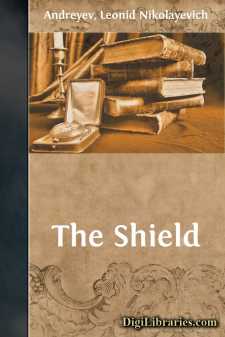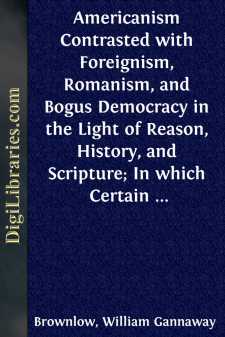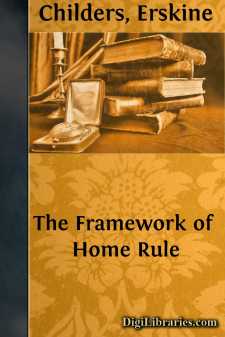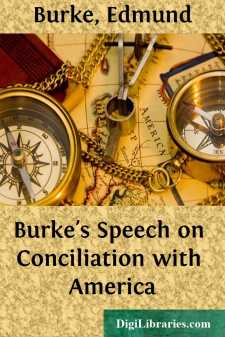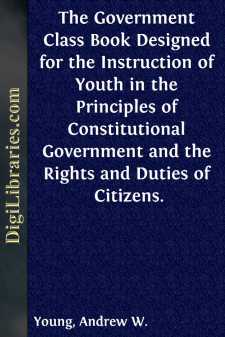Political Science
- Conspiracy & Scandal Investigations 1
- Constitutions 7
- Economic Conditions 10
- General 46
- Government 6
- History & Theory
- Peace 1
History & Theory Books
Sort by:
FOREWORD This is not merely a book about the Russian Jews. It is a marvellous revelation of the Russian soul. It shows not only that the overwhelming majority of the Russian intellectuals, including nearly all of her brilliant literary geniuses, are opposed to the persecution of the Jews or any other race, but that they have a capacity for sympathy and understanding of humanity unequalled in any other...
more...
by:
Francois Hotman
The State of Gaul, before it was reduced into a Province by the Romans. My Design being to give an Account of the Laws and Ordinances of our Francogallia, as far as it may tend to the Service of our Commonwealth, in its present Circumstances; I think it proper, in the first place, to set forth the State of Gaul, before it was reduced into the Form of a Province by the Romans: For what Cæsar, Polybius,...
more...
PREFACE. For the last twenty-five years, the writer of this work has employed much of his time in the reading and study of the controversy between Roman Catholics and Protestants. And those who have been subscribers to the paper he has edited and published for the last seventeen years, will bear him witness that he has kept up a fierce and unceasing fire against that dangerous and immoral Corporation,...
more...
by:
Erskine Childers
INTRODUCTION My purpose in this volume is to advocate a definite scheme of self-government for Ireland. That task necessarily involves an historical as well as a constructive argument. It would be truer, perhaps, to say that the greater part of the constructive case for Home Rule must necessarily be historical. To postulate a vague acceptance of the principle of Home Rule, and to proceed at once to the...
more...
CHAPTER I. THE RISE OF THE PARTY The party system is an essential instrument of Democracy. Wherever government rests upon the popular will, there the party is the organ of expression and the agency of the ultimate power. The party is, moreover, a forerunner of Democracy, for parties have everywhere preceded free government. Long before Democracy as now understood was anywhere established, long before...
more...
by:
Edmund Burke
POLITICAL SITUATION In 1651 originated the policy which caused the American Revolution. That policy was one of taxation, indirect, it is true, but none the less taxation. The first Navigation Act required that colonial exports should be shipped to England in American or English vessels. This was followed by a long series of acts, regulating and restricting the American trade. Colonists were not allowed...
more...
by:
Andrew W. Young
Chapter I. Mankind fitted for Society, and for Civil Government and Laws. §1. Mankind are social beings. They are by nature fitted for society. By this we mean that they are naturally disposed to associate with each other. Indeed, such is their nature, that they could not be happy without such association. Hence we conclude that the Creator has designed men for society. It can not, therefore, be true,...
more...
CHAPTER I. When, before resorting to extreme measures to obtain what the Uitlanders deemed to be their bare rights, the final appeal or declaration was made on Boxing Day, 1895, in the form of the manifesto published by the Chairman of the National Union, President Kruger, after an attentive consideration of the document as translated to him, remarked grimly: 'Their rights. Yes, they'll get...
more...
by:
Thomas Jefferson
MEMOIR. January 6, 1821. At the age of 77, I begin to make some memoranda, and state some recollections of dates and facts concerning myself, for my own more ready reference, and for the information of my family. The tradition in my father's family was, that their ancestor came to this country from Wales, and from near the mountain of Snowden, the highest in Great Britain. I noted once a case from...
more...
by:
Thomas Jefferson
LETTER I.—TO RICHARD HENRY LEE, April 22, 1786TO RICHARD HENRY LEE.London, April 22, 1786. Dear Sir, In your letter of October the 29th, you desired me to send you one of the new lamps. I tried at every probable place in Paris, and could not get a tolerable one. I have been glad of it since I came here, as I find them much better made here. I now deliver one, with this letter, into the hands of Mr....
more...


